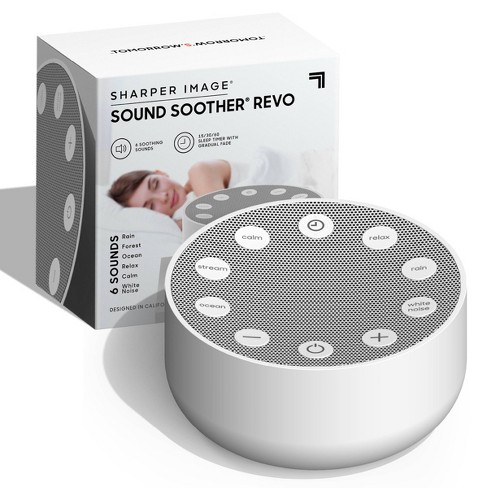Reliable Therapy Solutions for Taking Care Of Rest Disorders and Enhancing Relaxing Rest
In the realm of medical care, the management of rest disorders and the quest for restful sleep are essential components of overall wellness. Effective therapy services offer a complex method to deal with these obstacles, ranging from cognitive behavioral treatments to holistic methods that promote leisure and mindfulness. The expedition of various strategies, including the assimilation of medication and light therapy, opens up a realm of opportunities in the pursuit of better rest quality. As we browse the elaborate landscape of sleep problems and look for to boost our sleep experience, a much deeper understanding of these therapy solutions might hold the key to opening a much more rejuvenating and satisfying corrective journey.
Cognitive Behavioral Treatment for Insomnia (CBT-I)
Cognitive Behavioral Treatment for Sleeping Disorders (CBT-I) is an organized, evidence-based treatment method that focuses on attending to the hidden elements adding to rest disturbances. This kind of treatment aims to change habits and ideas that aggravate sleeping disorders, ultimately promoting healthy rest patterns. CBT-I generally involves a number of key elements, including cognitive treatment, rest constraint, stimulus control, and rest health education and learning.
Cognitive treatment aids people recognize and change adverse idea patterns and ideas concerning sleep that may be hindering their capacity to drop or stay asleep. Rest restriction entails restricting the amount of time spent in bed to match the person's actual sleep period, thereby increasing sleep efficiency (natural insomnia remedies). Stimulation control techniques aid establish a strong association between the bed and rest by urging individuals to visit bed just when sleepy and to stay clear of engaging in stimulating activities in bed
Moreover, sleep hygiene education focuses on creating healthy sleep practices, such as keeping a constant sleep routine, developing a relaxing bedtime regimen, and maximizing the sleep atmosphere. By addressing these aspects adequately, CBT-I offers a reliable non-pharmacological treatment for handling sleep problems and improving overall sleep quality.
Sleep Health Practices
Having actually established the foundation of cognitive restructuring and behavioral adjustments in attending to sleeping disorders via Cognitive Behavioral Treatment for Sleeping Disorders (CBT-I), the emphasis now changes in the direction of exploring crucial Rest Health Practices for keeping optimal sleep high quality and general well-being.
Rest health techniques incorporate an array of routines and environmental variables that can considerably influence one's capability to sleep and remain asleep throughout the night. Consistent rest and wake times, producing a relaxing bedtime regimen, and optimizing the sleep setting by maintaining it dark, silent, and cool are vital parts of good rest hygiene. Limiting exposure to displays prior to bedtime, avoiding energizers like caffeine near bedtime, and taking part in routine exercise throughout the day can also advertise far better rest top quality.
Moreover, practicing relaxation techniques such as deep breathing exercises or reflection before bed can help soothe the mind and prepare the body for sleep. By integrating these rest health practices into one's daily routine, people can develop a healthy and balanced sleep pattern that sustains peaceful sleep and total wellness.
Relaxation Techniques and Mindfulness
Implementing relaxation methods and mindfulness practices can play a critical duty in fostering a sense of calm and advertising top quality sleep. Additionally, led imagery can help transfer people maintenance insomnia to a serene area in their minds, aiding in stress decrease and enhancing rest high quality.
Mindfulness techniques, such as meditation and yoga, are also reliable in advertising relaxation and enhancing sleep. Mindfulness urges people to remain present in the moment, allowing go of stress over the past or future. By integrating these techniques into a bedtime routine, individuals can signal to their bodies that it is time to unwind and prepare useful reference for rest. In general, integrating relaxation techniques and mindfulness practices can substantially add to handling rest conditions and boosting general sleep quality.

Medication Options for Rest Disorders
After checking out relaxation techniques and mindfulness techniques as non-pharmacological treatments for boosting sleep quality, it is important to take into consideration medication choices for individuals with rest conditions. In instances where lifestyle modifications and treatment do not give enough alleviation, medication can be a useful tool in taking care of rest disruptions.
Typically prescribed drugs for sleep conditions include benzodiazepines, non-benzodiazepine hypnotics, antidepressants, and melatonin receptor agonists. Benzodiazepines, such as diazepam, are sedatives that can help cause rest, yet they are normally suggested for temporary use due to the danger of dependence. Non-benzodiazepine hypnotics like zolpidem are additionally utilized to treat sleep problems and have a reduced threat of reliance compared to benzodiazepines. Antidepressants, such as trazodone, can be advantageous for individuals with co-occurring anxiety and sleep disturbances. Melatonin receptor agonists, like ramelteon, target the body's all-natural sleep-wake cycle and can be helpful for controling sleep patterns.
It is important for people to talk to a medical care provider to establish the most proper medicine alternative based on their certain sleep problem and case history.
Light Therapy for Body Clock Guideline
Light therapy, also referred to as photo-therapy, is a non-invasive treatment approach made use of to regulate circadian rhythms and enhance sleep-wake cycles. This treatment entails exposure to bright light that resembles all-natural sunshine, which assists to reset the body's interior clock. By Source exposing individuals to particular wavelengths of light, usually in the early morning or night depending on the wanted effect, light therapy can effectively readjust the body clock to advertise wakefulness during the day and improve relaxing sleep at evening.
Study has actually revealed that light therapy can be specifically valuable for people with circadian rhythm problems, such as postponed rest stage syndrome or jet lag. It can likewise be valuable for those experiencing seasonal depression (SAD), a kind of clinical depression that normally takes place during the cold weather when all-natural light direct exposure is reduced. Light therapy is generally well-tolerated and can be used in conjunction with other therapy techniques for rest disorders to maximize results and improve total rest high quality.
Conclusion
To conclude, reliable therapy solutions for managing rest problems and boosting restful rest include Cognitive Behavioral Treatment for Sleeplessness (CBT-I), sleep hygiene practices, relaxation strategies and mindfulness, drug choices, and light therapy for body clock policy. These approaches can help people improve their rest top quality and overall health. It is crucial to speak with a doctor to determine the most ideal strategy for attending to rest problems.
As we browse the intricate landscape of sleep problems and look for to improve our sleep experience, a deeper understanding of these treatment services may hold the key to unlocking a much more rejuvenating and meeting restorative journey.
Sleep constraint involves limiting the amount of time spent in bed to match the person's real sleep period, therefore boosting sleep efficiency. Constant rest and wake times, producing a relaxing going to bed routine, and enhancing the sleep environment by keeping it dark, quiet, and cool are critical elements of excellent rest hygiene. Light treatment is typically well-tolerated and can be utilized in conjunction with various other therapy approaches for sleep conditions to maximize end results and enhance total sleep top quality.
